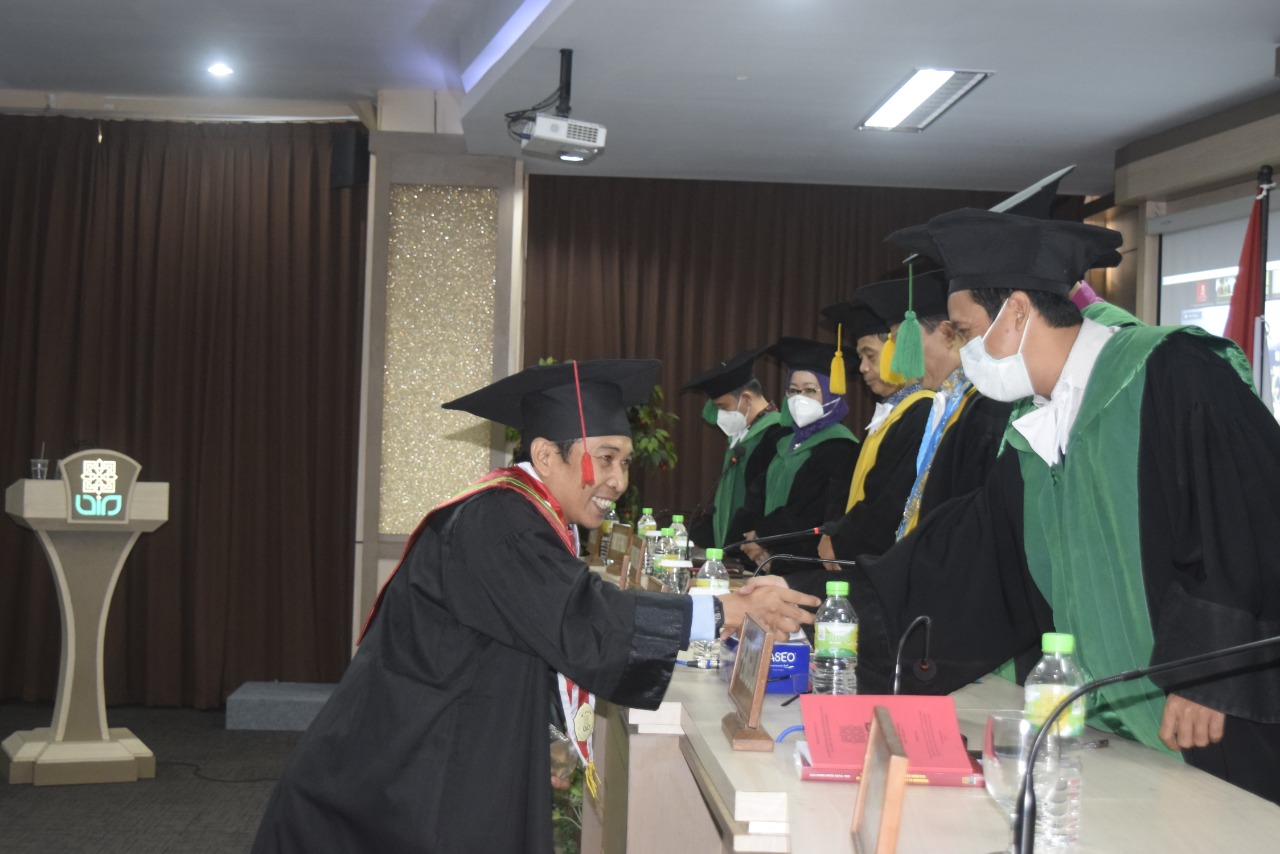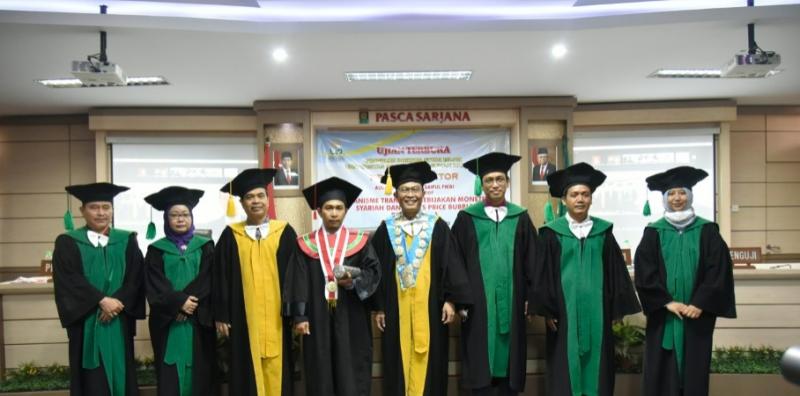You are here
Aula Receives Doctorate in Islamic Economics

Islamic banking is growing and in demand. The increasing number of transactions based on Islamic finance causes the government to also increasingly need to create various related policies. With the abundance of sharia-based transactions, the asset portfolio of Islamic banking is also increasing. On that basis, Aula Ahmad Hafidh Saiful Fikri, S.E., M.Si, a lecturer in the Department of Economics Education, researched and earned a Doctorate in Islamic Economics at the State Islamic University of Sunan Kalijaga Yogyakarta.
In this study, Aula tried to investigate how Islamic banking also plays a role in the formation of asset price inflation in common stock assets. "This study aims to analyze the interrelationship shock between monetary policy, Islamic banking asset variables, asset prices, and Indonesia's macroeconomic performance using a simultaneous structural equation," he said.
In this study, Aula examined the effectiveness of monetary policy using monthly data from 2003 to 2020. The variables used were BI 7-days (reverse) repo rate, Sharia SBI, Money Assets, Financing, Interest Rate Equivalence, Stock Price Index Composite, Indonesian Sharia Stock Index, Average Bond Return, Residential Property Price Index, Gold Price, Inflation and Industrial Production Index analyzed in the Structural Vector Autoregression (SVAR) model with restrictions.
Aula concluded that many asset portfolios were still placed in stocks, which affected the variability and volatility. If Islamic bank asset management allocation to assets still contains a price bubble, it can be interpreted that sharia principles are still not perfectly practiced. (fdhl-ed:ekki)

Faculties, Graduate School, and Directorates
- Faculty of Education and Psychology
- Faculty of Engineering
- Faculty of Mathematics and Natural Sciences
- Faculty of Languages, Arts, and Cultures
- Faculty of Social Sciences, Law, and Political Science
- Faculty of Health and Sports Science
- Faculty of Vocational
- Graduate School
- Directorate of Quality Assurance
- Directorate of Researches and Community Services
Contact Us
Copyright © 2026,
